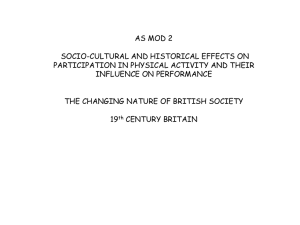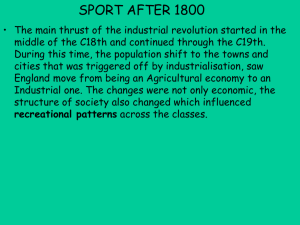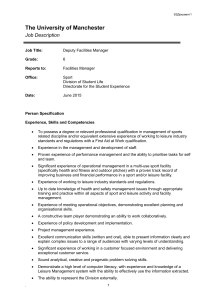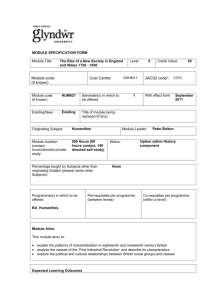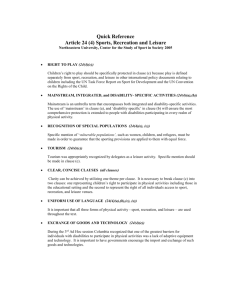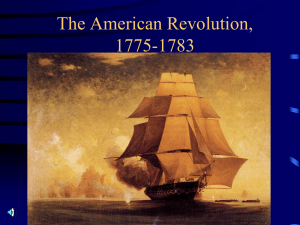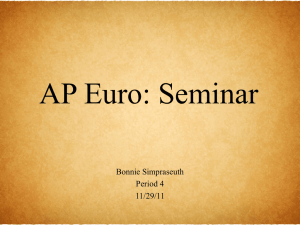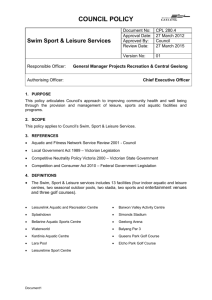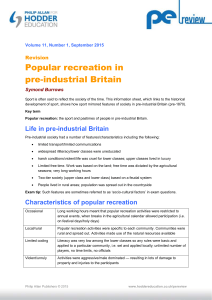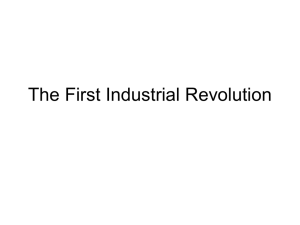Changing nature of British society
advertisement
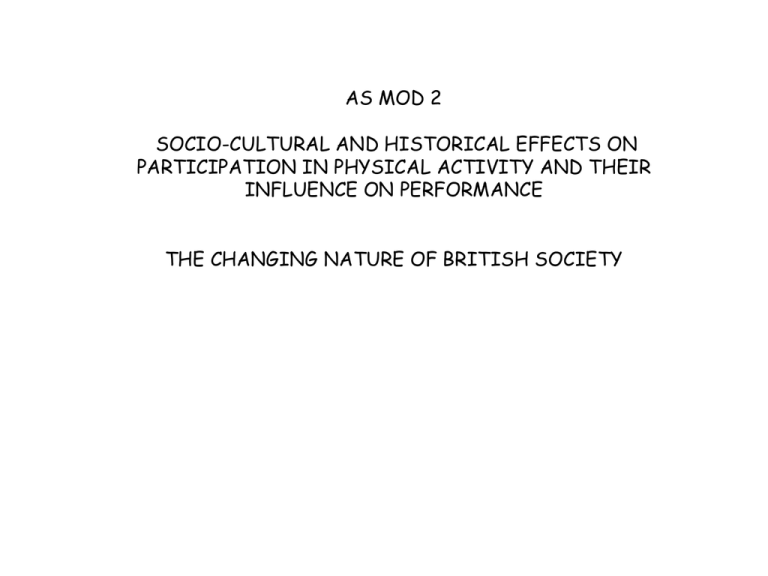
AS MOD 2 SOCIO-CULTURAL AND HISTORICAL EFFECTS ON PARTICIPATION IN PHYSICAL ACTIVITY AND THEIR INFLUENCE ON PERFORMANCE THE CHANGING NATURE OF BRITISH SOCIETY The Changing Nature of British Society Introduction: Sport is an INTEGRAL part of society British Society has undergone 3 phases 1. 2. 3. Pre-industrial society Industrialisation Post Industrial/Advanced Technological Society Developments in sport tend to MIRROR developments in society For example As society became CIVILISED so did sporting recreations of the time as reflected in the development of RULES, SKILLS and ETIQUETTE for many games What does Industrialisation mean? Process in 18th and 19th C when Britain moved from predominantly AGRICULTURAL base to an ECONOMY dominated by MANUFACTURING What does the CIVILISING OF SOCIETY mean? The development of HUMAN MANNERS, e.g the practicing of SELF RESTRAINT in social situations. CODES of BEHAVIOUR and ETIQUETTE became the norm. Sports became LESS VIOLENT in nature The birth of MODERN SPORT began in BRITAIN, the 1st INDUSTRIALISED country in the WORLD Modern sport developed in an atmosphere where social and economic conditions occurred, these were: 1.) Industrialisation 2.) Effective communications 3.) URBANISATION (mass of population changes lifestyle from living in villages/rural areas to living in towns/cities) 4.) Affluent society 5.) Population with sufficient leisure time and surplus disposable income PRE-INDUSTRIAL BRITAIN (pre 1750) - Majority of population lived in RURAL areas working on the land - UPPER CLASSES Were wealthy landowners holding political power - WORKING CLASSES Had little free time and their lives were harsh Strong sense of community Lack of free time = recreations only took place occasionally and mostly on RELIGIOUS HOLIDAYS and FESTIVALS As participation was not regular, many activities DID NOT develop STRUCTURALLY but retained their TRADITIONAL nature over 100’s of years = POPULAR RECREATION (eg MOB FOOTBALL) Peasants were UNEDUCATED (compulsory schooling >1870), whereas Upper Classes were educated in elite PUBLIC SCHOOLS In groups What were the characteristics of POPULAR RECREATION (eg MOB FOOTBALL)? - occasional due to free time - only a few simple unwritten rules - activity being PARTICIPATION-BASED rather than SPECTATOR-BASED - physical force rather than skill - many injuries/violent - lower class involvement - LOCAL rather than REGIONAL or NATIONAL events - limited STRUCTURE , EQUIPMENT and FACILITIES THE VICTORIAN ERA (1839 – 1901) When Queen Victoria was on the throne This era saw major transition in society Immense contrasts between RICH and POOR Nation was PROSPEROUS and STABLE This era coincided with the INDUSTRIAL REVOLUTION The Industrial Revolution (1750 – 1850): Nation underwent URBANISATION Cramped living and working conditions in towns Move from AGRICULTURE and COTTAGE (craft workshops) industries to FACTORIES Britain seen as WORKSHOP OF THE WORLD Industrial Revolution c’ntd Britain was 1st European Country to undergo Industrial Revolution By middle of 19th C, Britain was WORLD’S LEADING INDUSTRIAL POWER By 1901: only 10% of its labour force worked in agriculture ¾ of population lived in TOWNS/CITIES population nearly TREBLED In pairs: How would this have affected the working week, recreation, environment? - Hours being worked (12 hrs/day) - Women and children working (coal industries) - Working week (6 days) - Expectations to attend church on Sun - Little time for rest and leisure (no MOB FOOTBALL) - Restricted recreational opportunities/facilities - Urban squalor (poor health) - Spoiled landscapes Industrial Revolution c’ntd Gradually improvements were made: - Trade Unions helped - ½ day Saturdays - Early closing for shop workers on Wed - Bank Holiday’s (provision of NATIONALLY recognised LEISURE TIME) - Wages increased giving working classes DISPOSABLE income In pairs: How were these new improvements positive for Sport and Recreation? - participation in more activities - Spectator sports and facilities began to develop - Increased disposable income meant more money to spend on leisure - On Bank Holidays, people began taking excursions to the country/seaside by train/cycling/foot - Town and City parks were used for recreational purposes
